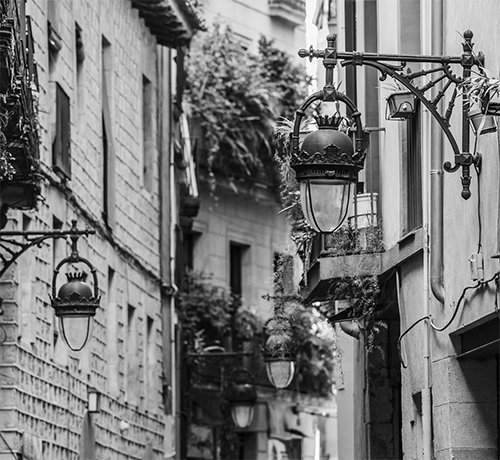

Books that x-ray the Catalan economy
The Catalan economy is made up of a veritable “great spider’s web,” as Roger Vinton calls it in the title of his book. Faced with this idea, and with the suspicion that the knots and actors in this web are poorly explained, a good number of books have appeared on a recurring basis that attempt to untangle it. We review them in La Plaça.
The reflections that follow, whether in the form of memoirs, such as those by Josep Pla and Cristian Segura, or in the form of journalistic essays, such as those by Roger Vinton, Gemma Garcia Fàbregas, Jordi Amat, Pere Cullell and Andreu Farràs, describe how the productive and financial economy works in the hands of elites who prefer to remain in the shadows.
- ‘Homenots’, by Josep Pla. ‘Homenots’ is a series of 60 profiles by Josep Pla on figures of his time. They were published between 1958 and 1962 by Editorial Selecta and between 1969 and 1974 by Editorial Destino in four volumes. In the preface to one of the volumes, Pla stated that, for him, “a ‘homenot’ is a singular, unusual type, a person who has been significant, in any activity, in a remarkable way.” Among these profiles are those of Prat de la Riba, Jaume Bofill, Joan Miquel Avellí and Ramon Godó, among many others, who make up the economic and political substratum of the country.
- ‘L’oasi català’ (2001), by Pere Cullell and Andreu Farràs. The Catalan oasis refers to the close relations that developed between the Catalan bourgeoisie and the centralism of the Madrid court in the 19th century. The term seems to have been coined by the journalist Manuel Brunet. And it seems that, today, there would be some 400 people who would represent this Catalan elite spread across cultural and economic centres. With this expression, the journalists Pere Cullell and Andreu Farràs titled their essay, in which they explain the family, educational and summering relationships of a good part of these leading figures of Catalan society, who embrace the entire Catalan political spectrum.
- ‘Els senyors del boom’ (2014), by Gemma Garcia Fàbregas. The journalist touches in depth a very sensitive story, that of the real estate gold rush experienced in the Catalan Countries and its social, political and economic impacts, with first-hand information and a highly documented analysis that opens a new perspective on the reasons for a catastrophe foretold as was the real estate bubble.
‘La gran teranyina’ (2017), by Roger Vinton. ‘La gran teranyina’ reveals the opaque structure from which certain agents exercise the power through which they control events and situations that affect our society on a daily basis. This book allows us, in Vinton’s own words, to “open our eyes and become aware of the immense power of the individual.” A profound investigation that changes the perception of Catalonia and that some have considered a true reference manual or compass in the jungle of power. - ‘El fill del xofer’ (2020), by Jordi Amat. Following the dark figure of Alfons Quintà -journalist, lawyer, merchant navy officer and judge, who on 19 December 2016 murdered his wife and then committed suicide with a hunting rifle-, Jordi Amat reflects on power. Behind a dazzling journalistic career, which spans from the direction of TV3 to the talk shows of Intereconomía, a dark trajectory is hidden, full of blackmail, sexual persecutions, abuses of authority and various tricks, which shows how the sewers of power work in Catalonia.
- ‘Gent d’ordre’ (2021), by Cristian Segura. Halfway between an essay, a memoir and a journalistic chronicle, Cristian Segura writes an exhaustive portrait of Barcelona’s elites. A society in transformation due to globalisation, the consolidation of the welfare state and also the hegemony of Catalan nationalism. Elites do not disappear, they are transformed. And Barcelona is the paradigm of this.
11Onze is the fintech community of Catalonia. Open an account by downloading the app El Canut on Android and Apple and join the revolution!





👏 👏 bona llista de recomanacions!!
Gràcies, Laura!!!
Gràcies per l’informacio
No es mereixen, Alícia, moltes gràcies a tu per ser-hi i seguir-nos…
Gràcies per la informació, es interessantisima
Celebrem que ho trobis tant interessant… Moltes gràcies pel teu comentari, Jordi!!!
Gràcies
Gràcies a tu, Joan!
👏
🙏
Gràcies per les recomanacions.
Gràcies per seguir-nos, Manuel!
Ok 👍
Gràcies, Josep!
Bones recomanacions. Alguns ja els he llegit. Els altres els posso a pendents.
Encantats d’ajudar-te Pere, desitjo que gaudeixis la bona lectura, tot un plaer. Seguim.
Gràcies per la recomanació. Convé saber on som per poder encarar un futur diferent. A Catalunya la teranyina econòmica substitueix la falta de poder polític. No hi ha lobbys de pressió al poder, el poder és a Madrid. L’elit fa pinya i no es delaten els uns als altres a fi de que tot segueixi igual.
El coneixement és poder, i saber on rau tot ens ajuda, gràcies Mercè.